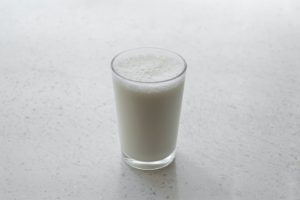Being diagnosed with HS can be a life changing moment, and very often, we can feel a sense of grief and loss of control of our bodies. While there is no cure for HS, doctors and researchers are working hard developing new treatments that will help to improve our lives and there has been lots of progress in the last 10 years. In this article we will look at food, and hidradenitis suppurativa trigger foods.
What can we do?
We can all do our part, by giving our bodies the best chance of healing and recovery. We can be kind to ourselves and make sure that we treat our bodies well to keep it in good working order.
Where do we start?
One big way we can contribute to our own wellbeing is by making healthy diet choices. This doesn’t have to be a complete hidradenitis suppurativa diet overhaul, it could be simply reducing certain foods, and increasing others. Or replacing a sweet treat with a healthier alternative. There is very limited research on hidradenitis suppurativa and diet, but more and more health care practitioners are discussing diet with patients, and people with HS all over the world are talking about their dietary changes that helped improve their HS.
Dr Sayed
Dr Chris Sayed is a HS specialist doctor who has dedicated years of his career and used his skills to help hundreds of HS patients. He kindly agreed to answer some questions, and to share his thoughts on hidradenitis suppurativa and diet.
Question 1 – Trigger Foods
In talking to your HS patients, what foods do they think cause them to flare? Have you noticed a trend in what people suspect are their “trigger” foods?
This is such a tough question because there is such a long list. Also, the trends seem to change over time. Dairy, sugar, flour, nightshades, brewer’s yeast, gluten and many other triggers are reported. However, there is again, a major lack of organized investigation. Based on feedback from patients, dairy probably comes up the most. There have been a couple of studies with some major flaws that suggest that brewer’s yeast may be a trigger as well. I often urge patients interested in eliminating certain foods to focus on one or two things they can reduce. Instead of trying to do everything at once.

These diets can be very restrictive and difficult to maintain. This itself can have a negative impact on quality of life. I know I couldn’t do a lot of them so I don’t want to set patients up for failure and have them blame themselves for not being able to keep them up.
Question 2 – Foods to Avoid, and foods to include
Can you suggest some foods to reduce or avoid, and some to increase in our daily diet?
Starting with a basic change like avoiding any sugar in beverages goes a long way. They are a major source of sugar and calories for many people. I think trying out dairy avoidance or brewer’s yeast avoidance for 6-8 weeks is reasonable if people feel like they can handle it.
Tumeric has been very popular in recent years for HS and some other inflammatory conditions. Its effect on HS has not been studied. However, there is some evidence that it helps to reduce inflammation. It is typically taken in capsule form and can be found at most health food stores or through online vendors.


